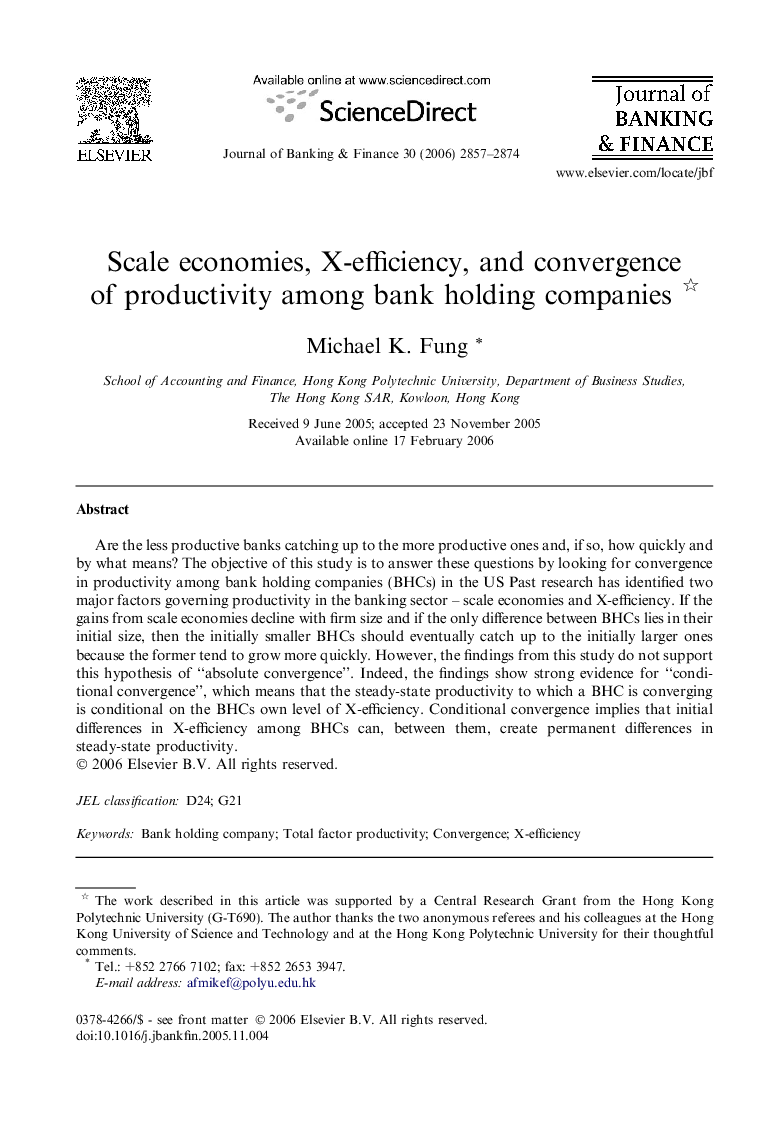| Article ID | Journal | Published Year | Pages | File Type |
|---|---|---|---|---|
| 5091442 | Journal of Banking & Finance | 2006 | 18 Pages |
Abstract
Are the less productive banks catching up to the more productive ones and, if so, how quickly and by what means? The objective of this study is to answer these questions by looking for convergence in productivity among bank holding companies (BHCs) in the US Past research has identified two major factors governing productivity in the banking sector - scale economies and X-efficiency. If the gains from scale economies decline with firm size and if the only difference between BHCs lies in their initial size, then the initially smaller BHCs should eventually catch up to the initially larger ones because the former tend to grow more quickly. However, the findings from this study do not support this hypothesis of “absolute convergence”. Indeed, the findings show strong evidence for “conditional convergence”, which means that the steady-state productivity to which a BHC is converging is conditional on the BHCs own level of X-efficiency. Conditional convergence implies that initial differences in X-efficiency among BHCs can, between them, create permanent differences in steady-state productivity.
Related Topics
Social Sciences and Humanities
Economics, Econometrics and Finance
Economics and Econometrics
Authors
Michael K. Fung,
